Retrospective: Pasolini
Pier Paolo Pasolini (1922–1975)
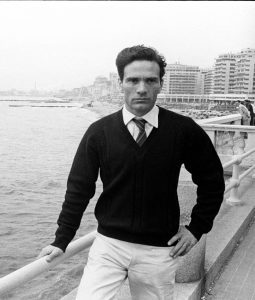
An eruptive force in postwar European thought, Pier Paolo Pasolini (1922–1975) was an uncontainably multifaceted genius whose biography and art—inseparably fused—were sculpted from the same invisibly resilient marble: that of his turbulent political and ideological struggles. A poet, novelist, filmmaker, essayist, philosopher, and polemicist, Pasolini burst onto the film scene with Accattone! (1961), a raw portrait of Rome’s lumpenproletariat. Over the next decade and a half, he would construct a memorably bold creative universe—an experimental amalgam of heterodox Marxism, mystical religiosity, and Freudian psychology—palpably present in the distinctive blend of reverence and provocation that surges from his reworkings of Christian theology (The Gospel According to Matthew), Greek tragedy (Oedipus Rex, Medea), medieval erotic tales (The Trilogy of Life), and modern social wounds (Teorema, Salò).
A defiant iconoclast and openly homosexual artist, Pasolini was one of those willful outsiders who refuse to join any club eager to accept them. He remained in constant conflict with authorities, the Church, and the Right, while also engaging in a quietly passionate lover’s quarrel with the Party and the world.
His works—often censored for blasphemy and explicit content—have earned him a mythic status as a provocative bard and political poet of cinema. Brutally murdered half a century ago, Pasolini remains vividly alive today as one of the great political voices of film.

Introductory Remarks
Anastasija Gjurchinova (1963) is an essayist, translator, and university professor of Italian literature. She is the author of numerous monographs and editor of several collections and anthologies. Her translations have earned her the “Dragi” award (once) and the “Golden Pen” award (twice). She is also the recipient of two orders of merit from the President of Italy.
A ceremonial address will be given by Prof. Sonja Miserendino, Cultural Attaché of the Italian Embassy in Skopje.
![]()
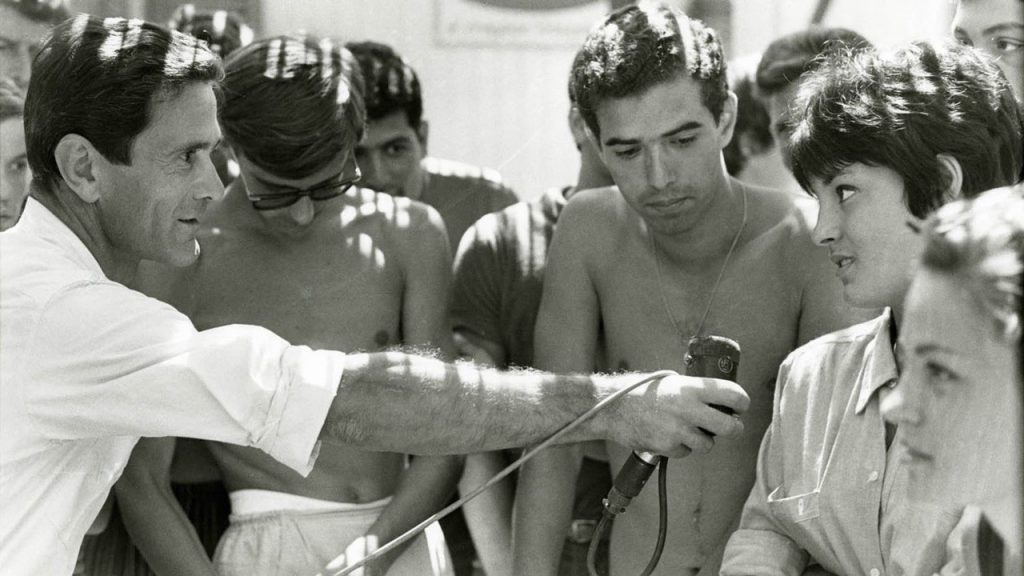
(May 5 / 20:00) LOVE MEETINGS
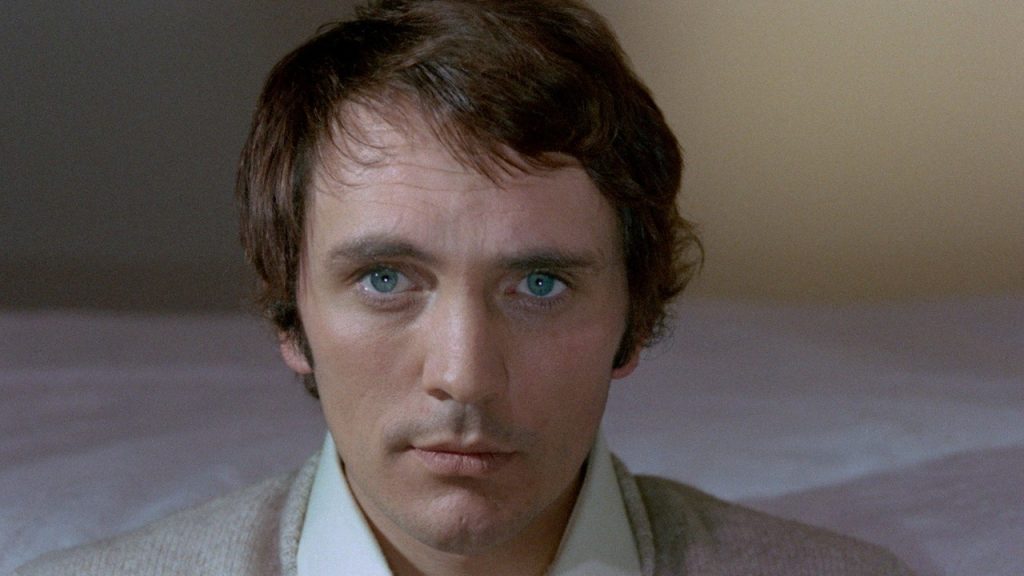
(May 7 / 20:00) THEOREM

(May 8 / 20:00) OEDIPUS REX
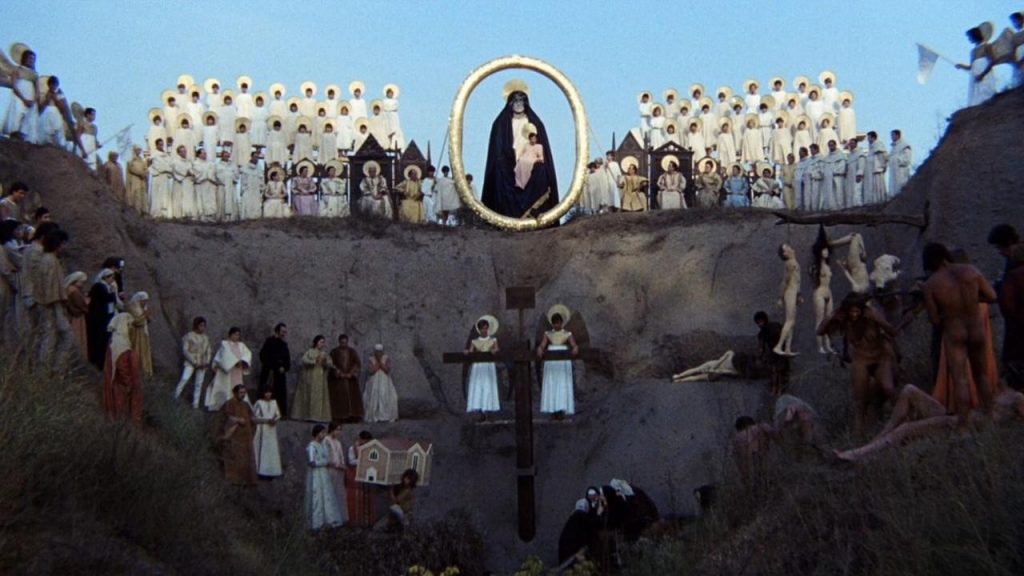
(May 9 / 20:00) THE DECAMERON
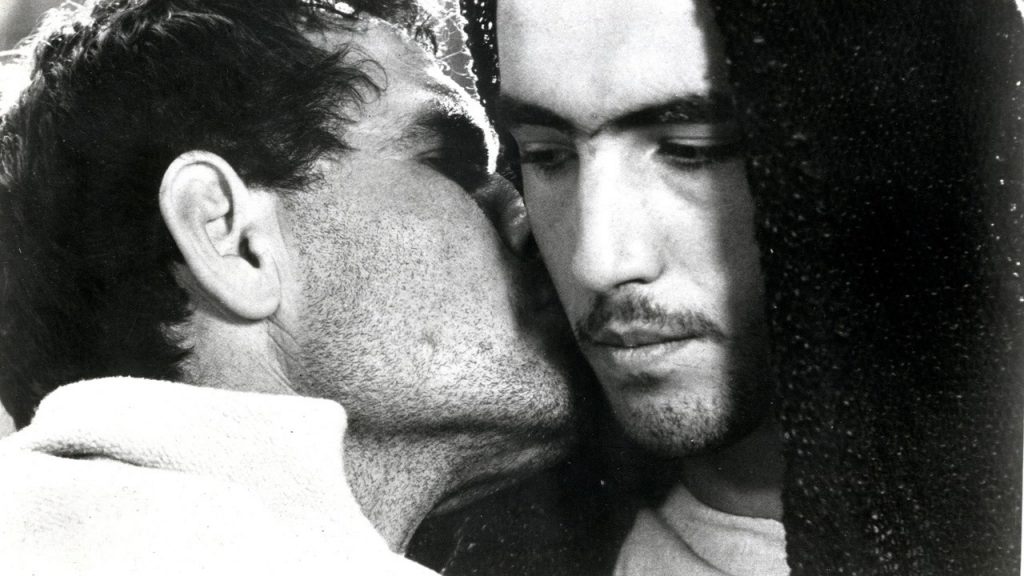
(May 22 / 20:00) THE GOSPEL ACCORDING TO ST. MATTHEW
-
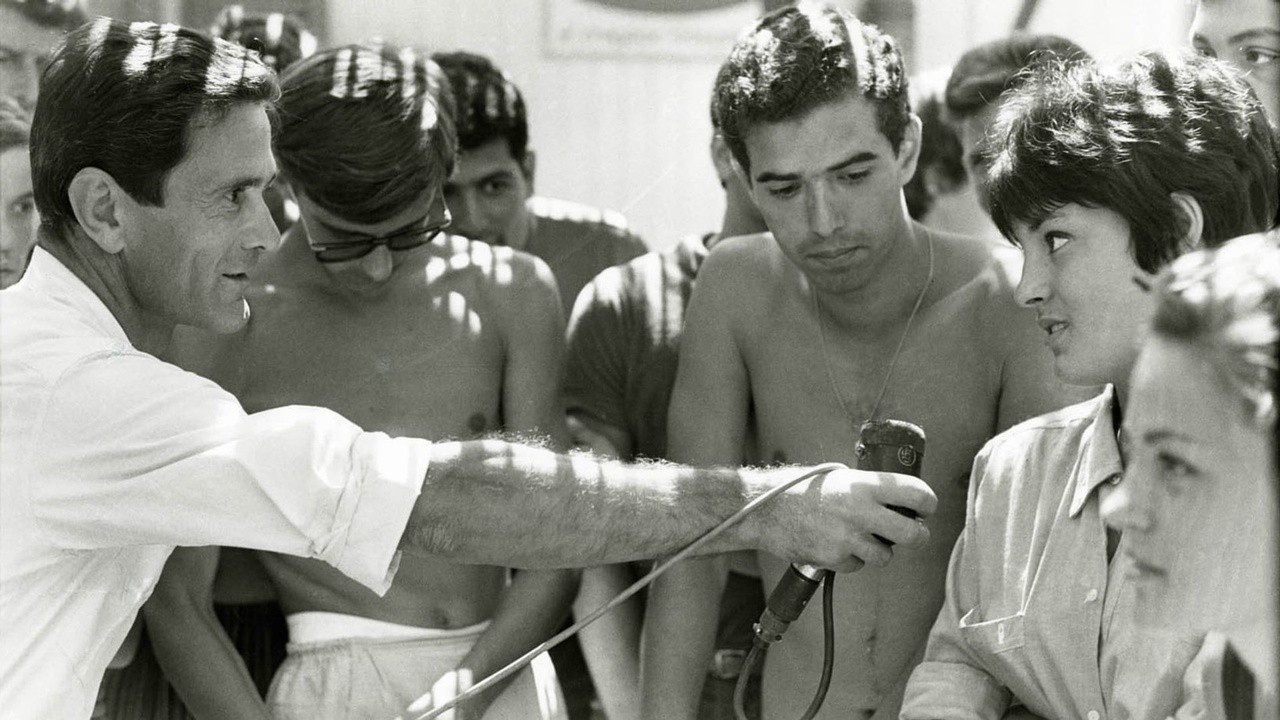
(May 5 / 20:00) LOVE MEETINGS
May 5 (Monday) 20:00
Cinematheque
LOVE MEETINGS (Comizi d'amore, 1964)
dir. Pier Paolo Pasolini, IT, 93’
Introductory Remarks by Anastasija Gjurchinova
Love Meetings is a provocative survey film — a cross-section of an Italy torn between politics and intimacy, between strict Catholic morality and deeply repressed, often inarticulate desires and passions.
Pasolini travels across the country — from factories to beaches, from the bourgeoisie to the lumpenproletariat, from Milan to Sicily — interviewing both random passersby and carefully chosen intellectuals (Alberto Moravia, Cesare Musatti, Giuseppe Ungaretti, Oriana Fallaci, Adele Cambria) about their views on sex. With a microphone in hand and a Socratic childlike curiosity, he asks direct questions about a wide range of topics: the importance of sex in everyday life, taboos, homosexuality, the criminalization of prostitution, and the legalization of divorce.
The result is a fascinating, at times comical, and often disturbingly honest portrait of the Italian mentality and its intimate contradictions in the early 1960s. -
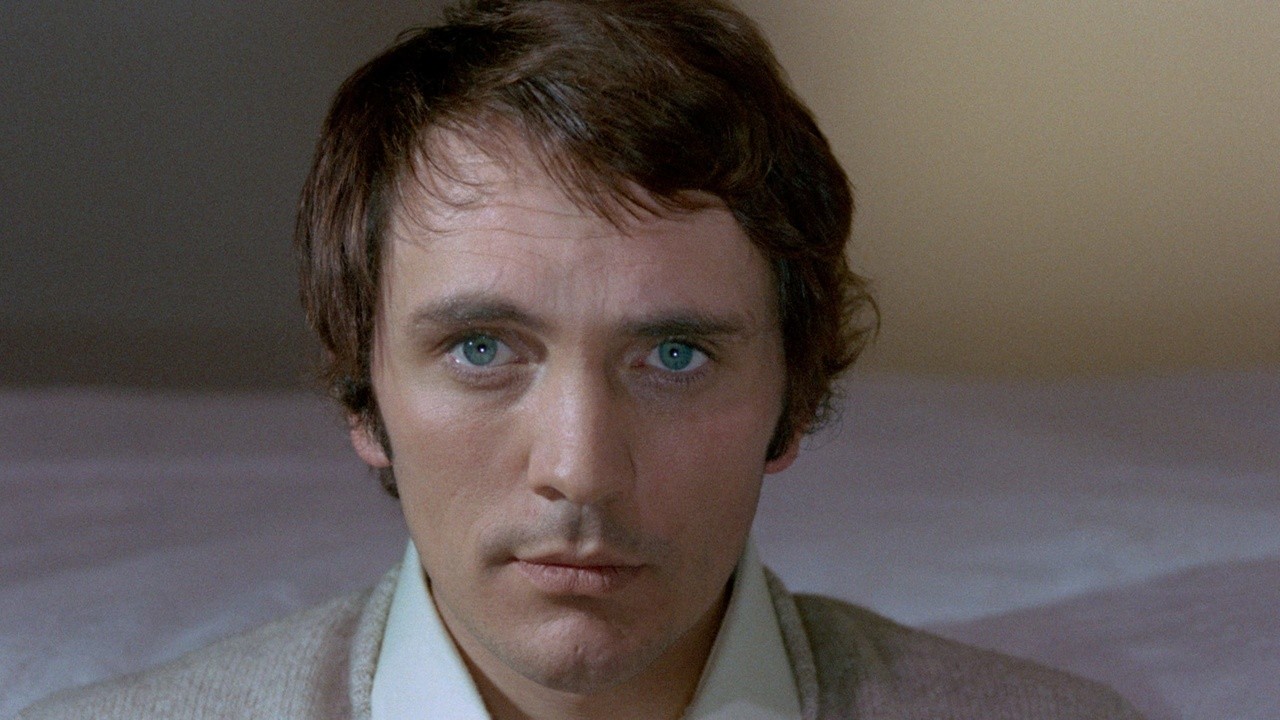
(May 7 / 20:00) THEOREM
May 7 (Wednesday ) 20:00
Cinematheque
THEOREM (Teorema,1968)
dir. Pier Paolo Pasolini, IT, 98’
Mysterious and permanently unsettling, Pasolini’s Teorema is a relentless allegorical probe into the heart of contemporary bourgeois existence. Its famed verbal austerity—predictably highlighted as a marketing point across the Atlantic—is far from a mere stylistic exercise. Rather, it serves as the perfect backdrop for deconstructing the spiritual emptiness of the privileged class, exposed with pseudo-mathematical precision and Old Testament severity.
At the film’s narrative core is the sudden arrival of a blue-eyed stranger with Caravaggian charisma at the home of a wealthy Milanese industrial family. Within a short period, the enigmatic visitor establishes intimate, almost ritualistic relationships with each member of the household: the maid Emilia, the son Pietro, the mother Lucia, the daughter Odetta, and the father Paolo.
His departure—just as abrupt as his arrival—leaves the family members in a state of existential vacuum, and perhaps on the threshold of a brutal kind of liberation. Each of them reacts in an individually extreme way, seeking an escape from the newly emerged chaos either through a form of sublimated self-expression (sanctity, art), through its bodily perversion (sex, catatonia), or by a total rejection of their former life, revealed in a primal desert scream...
Despite its methodical structure, Pasolini’s Teorema defies any singular or systematic interpretation, remaining a provocative essay-parable on the impossibility of redemption within conventional social frameworks, as well as on the radical crisis of petit-bourgeois morality and institutionalized spirituality. -

(May 8 / 20:00) OEDIPUS REX
May 8 (Thursday) 20:00
Cinematheque
OEDIPUS REX (Edipo Re, 1967)
dir. Pier Paolo Pasolini, IT, MA, 104’
Pasolini’s adaptation of Sophocles’ Oedipus Rex transcends the classical text by framing the ancient myth between an autobiographical prologue and epilogue that relocate the story’s action to Fascist and postwar Italy. In doing so, the legend intertwines with the director’s personal history, and his complex relationship with his father explicitly evokes Freudian interpretations of the Oedipus complex.
While the central narrative remains faithful to the paradigmatic ancient Greek tragedy, it is visually transposed into the archaic, almost mythical landscapes of the Moroccan desert. Stripped and sun-scorched, these settings provide the perfect backdrop for a raw, pre-classical, ritualistic, and barbaric world—one in which human existence is mercilessly exposed to the primal forces of necessity, prophecy, and inescapable fate.
The dynamic, at times handheld camerawork, the striking visual syncretism of the costumes and masks (inspired by African, Aztec, and Sumerian artifacts), and a soundscape that blends ancient folk melodies with modern atonality all converge into a hypnotic, starkly brutal, and deeply symbolic vision of the archaic and the pre-instinctual. Within it, the universal tragedy of the ill-fated Theban prince is refracted through Pasolini’s own authorial obsessions—the sacred, the mythical, the primitive—emerging as a hauntingly modern exploration of predestination, obsessive guilt, and the labyrinths of the unconscious. -
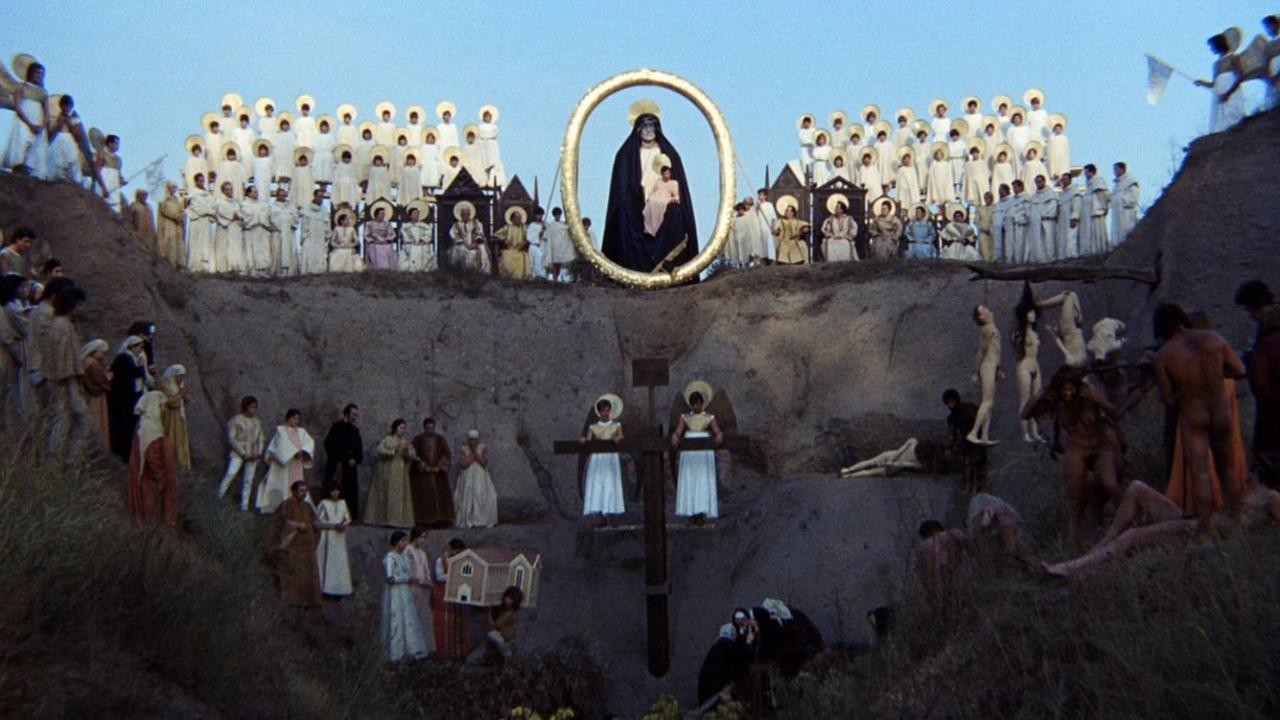
(May 9 / 20:00) THE DECAMERON
May 9 (Friday) 20:00
Cinematheque
THE DECAMERON (Il Decameron, 1971 )
dir. Pier Paolo Pasolini, IT, FR, 112’
Awarded the Silver Bear at the 21st Berlin International Film Festival in 1971, The Decameron is the first film in Pasolini’s renowned Trilogy of Life. Like the two films that follow in the cycle (The Canterbury Tales, Arabian Nights), it is much more than an adaptation of a pre-Renaissance literary masterpiece. It is, above all, a polemical and unrestrained celebration of the body, eroticism, and the untamed vitality of a bygone era—an era untainted by the sterility of modern consumerism.
Inspired by Giovanni Boccaccio’s collection of novellas of the same name, The Decameron unfolds a picturesque canvas of a boisterous and multicolored medieval Naples—a city that can only be loved by someone who has lost it. It is depicted as a joyous microcosm of human temptation and desire. Through a series of episodes that celebrate folk cunning and earthiness, Pasolini constructs a playful narrative mosaic imbued with lascivious, earthy humor, erotic boldness, and carefree sensuality. Predictably opposed to the rigidity of the upper classes, this explicit corporeality of the masses also functions as a tool for exposing social—and above all, clerical—hypocrisy.
In this electrifying fusion of restless, scatological-sexual exuberance, unrestrained rawness, and irresistible joy of living, Pasolini does not simply seek an escape into the past. Rather, he aims to reaffirm the original, authentic, and defiant energy of the human spirit—that primal force which, according to his later and darker vision of history, the modern world of conformity and capitalist alienation has irretrievably lost. -
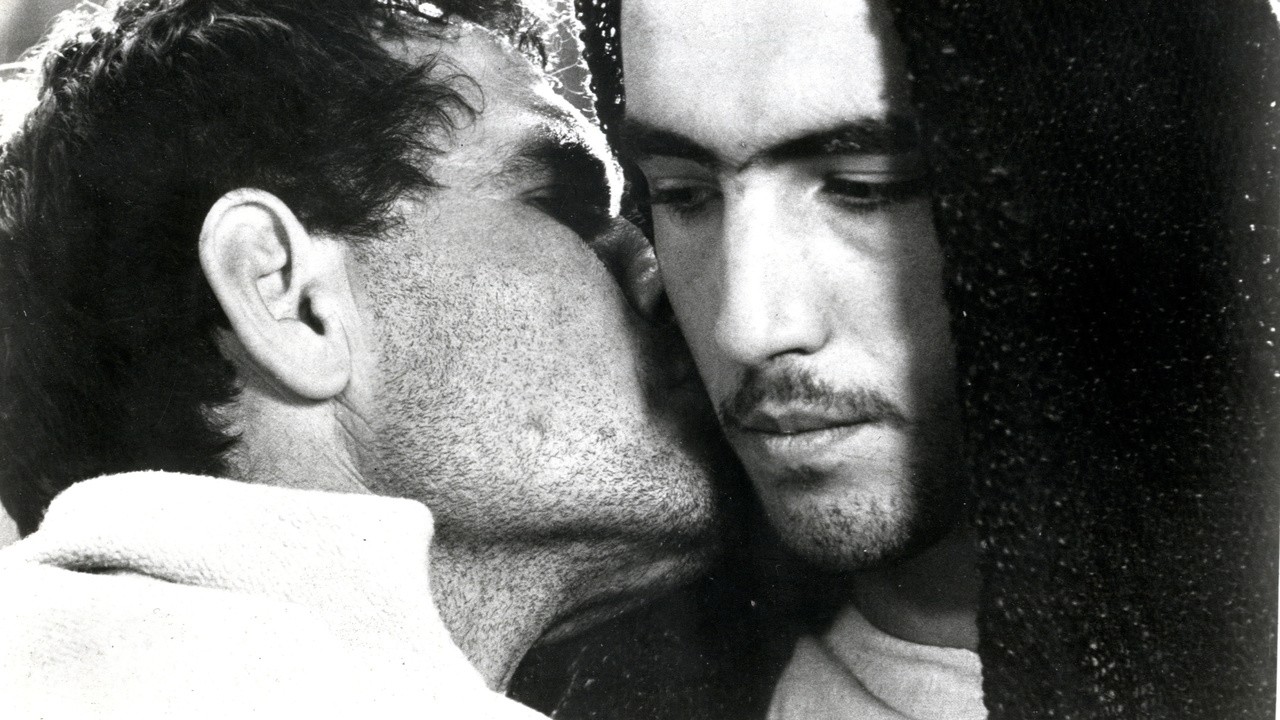
(May 22 / 20:00) THE GOSPEL ACCORDING TO ST. MATTHEW
May 22 (Thursday) 20:00
Cinematheque
THE GOSPEL ACCORDING TO ST. MATTHEW
(Il vangelo secondo Matteo, 1964)
dir. Pier Paolo Pasolini, IT, FR, 137’
Populated by non-professional actors and filmed on raw southern Italian locations in the manner of Italian neorealism—with striking documentary-style black-and-white cinematography and an eclectic musical score ranging from Bach to blues—The Gospel According to Matthew is an impressively modest biblical biopic and a surprisingly warm portrait of a radically defiant Christ: one who brings not peace, but a sword (Matt. 10:34); one who confronts the Pharisees and hypocrites with uncompromising proclamations of a kingdom of justice for the downtrodden.
In this light, the seemingly accidental casting of Jesus also appears deeply intentional: Enrique Irazoqui, a nineteen-year-old Spanish student with Marxist beliefs, happened to be visiting Rome at the very time Pasolini was searching for his lead. Beyond the biblical, Irazoqui’s portrayal channels the rebellious spirit of the 1960s—a Christ who protests against war, materialism, and class privilege.
Gentle, intuitive, and openly faithful to the New Testament text (whose poetic peaks serve as its immediate inspiration), The Gospel According to Matthew expresses Pasolini’s distinctive “cultural Catholicism,” grounded in a dream of liberating the historical Christ from dogmatic constraints in order to highlight his revolutionary ethics and boundless empathy.
Through this transfigurative act, The Gospel According to Matthew becomes not only one of the finest films about the life of Jesus, but also a profoundly human, rigorous, and sincere meditation on the inseparable bond between faith, the sacred, and radical revolt.




































